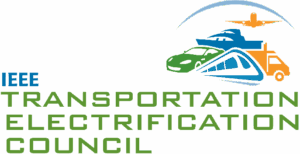Attendees of IEEE Transportation Electrification Community webinars will receive a Certificate of Attendance and will have the opportunity to earn one (1) Professional Development Hour (PDH) certificate! Once the webinar is complete, a link will be provided for you to complete a form to receive a certificate.
For live webinars, you do not need to be a member of the IEEE TEC. Please note to access past webinars you will need to be a member of TEC.
Call for Webinar Presenters and Podcast Speakers
The TEC is now seeking recommendations for webinar presenters and podcast speakers in the following areas of interest:- All Electric Aircraft
- Autonomous Vessels
- Connected Vehicles
- E-Mobility Applications – On-Road and Off-Road (including Autonomous Vehicles)
- Mass Transit
- Aerial Vehicles
- High Speed Rail
- Hybrid Electric Aircraft
- Hybrid electric Vessels
- Intelligent Vehicles
- New Battery Technology
- Power Electronics
- Solar Electric Mobility
- Wireless Charging



